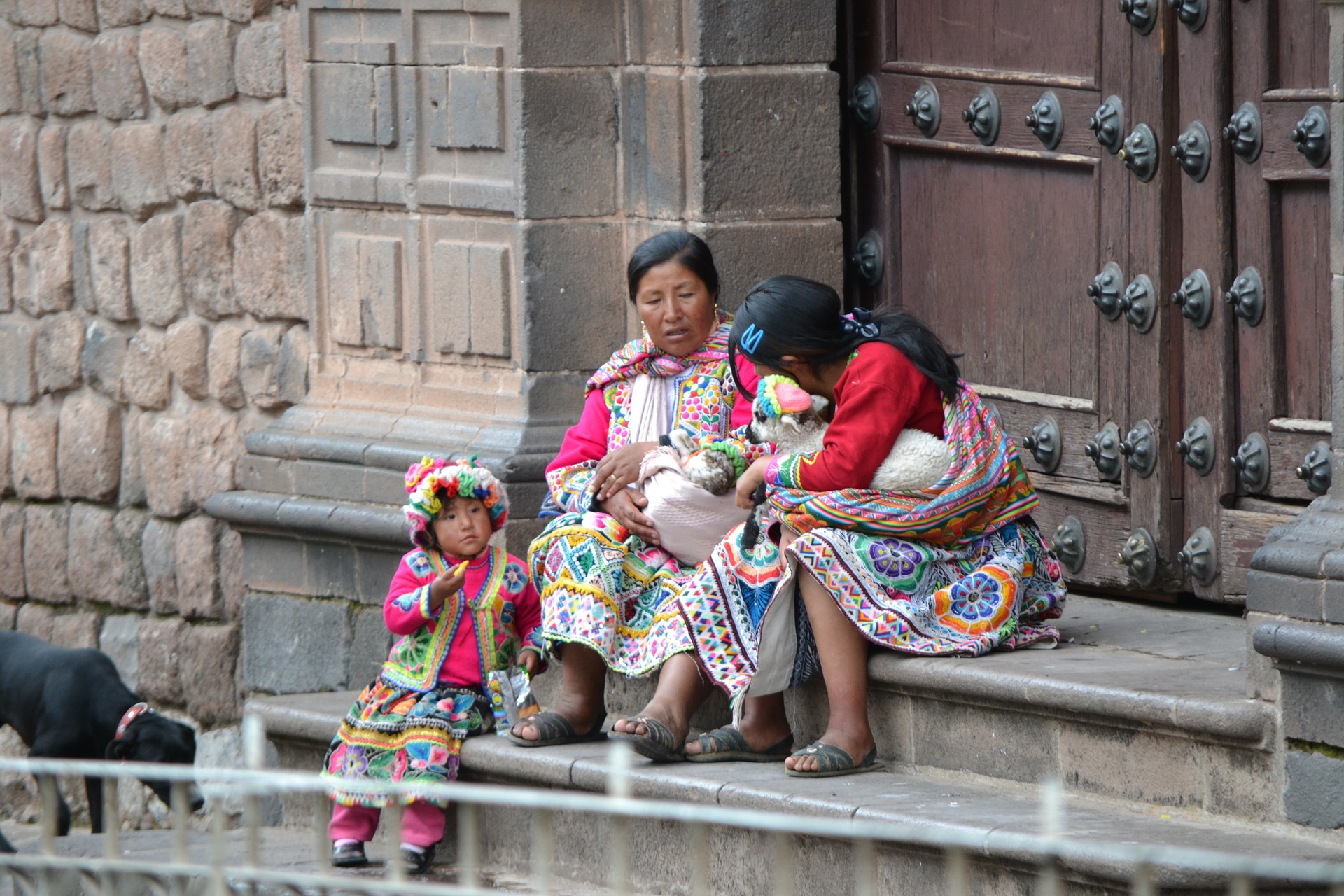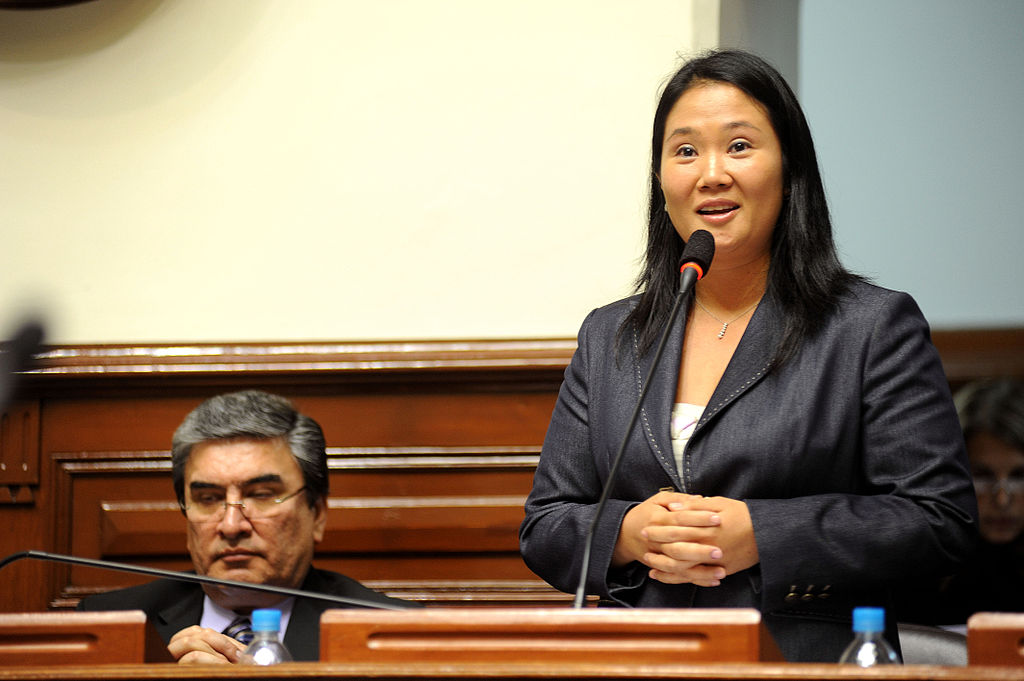During the 1990s, Alberto Fujimori ran Peru with an iron fist. Now, he’s serving a 25-year sentence after being found guilty of corruption and human rights abuses, including using death squads to carry out extrajudicial executions and overseeing the forced sterilization of at least 300,000 indigenous women.
Today, Mr. Fujimori’s daughter, Keiko Fujimori, is running for president of Peru. While many Peruvians oppose her campaign run, worrying that her presidency could mean a return to the dark days of her father’s control, she obtained more than 30% of the votes in the first round of voting and she is currently the frontrunner in the second round.
Alberto Fujimori’s Peru and the Aftermath
When Mr. Fujimori became president, Peru was near economic collapse and terrorized by violent rebel groups. Today, many Peruvians believe that he changed the country for the better by saving the economy through reforms, and defeating terrorism, which was responsible for thousands of deaths in the 1980s and 1990s.
However, his controversial tactics included extrajudicial killings of rebels as well as many innocent indigenous people. Mr. Fujimori also oversaw the forced sterilization of at least 300,000 indigenous women in Peru. These women were deprived of food and medical care unless they submitted to sterilization.

Mr. Fujimori was also responsible for throwing the country into chaos in 1992 by ordering army tanks to shut down the Peruvian Congress, reorganizing Peru’s judicial system, and drafting a new constitution. This resulted in him seizing greater control of the country.
In 1995, Mr. Fujimori restored the Peruvian Congress and he was elected for a second term as president. He was also reelected in 2000; however, his third term didn’t last long. Mr. Fujimori fled to Japan in November 2000 after news of a spying scandal broke. He remained there until 2005, when he tried to return to Peru to run for president again.
He was detained in Chile and then extradited to Peru in 2007 to stand trial for crimes committed during his presidency. Ultimately, he was found guilty of human rights abuses in 2009 and he received a 25-year sentence.
Today’s Concerns: President Keiko Fujimori?
In early April, before Peru’s presidential election, over 30,000 protesters crowded the streets of Lima to demand that Ms. Fujimori suspend her presidential campaign.
Among the protesters were indigenous women who marched while chanting, “We are the daughters of the indigenous women you couldn’t sterilize.” Some of them painted their thighs red to raise awareness about the forced sterilization of over a quarter of a million women. Other protestors chanted “never again” and carried signs that said “No More Fujimori.”
Ms. Fujimori has vowed that her presidency will not be plagued by corruption or human rights violations. She even went as far as to sign a pledge to respect human rights and the country’s institutions if she is elected president. She also promised not to pardon her father. However, for various reasons, the protesters don’t believe her.

For example, Ms. Fujimori denies that 300,000 women were forcefully sterilized as a result of her father’s decisions. She claims that only a few hundred women were impacted. Furthermore, in response to her father’s 2009 conviction, she said that she was “indignant” and “had expected that justice would be served.”
Despite these concerns, there are many Peruvians that believe Ms. Fujimori would make a good president. In fact, there are even some who think that Peru needs a woman president. Many Peruvians believe that the country could benefit from her promises to promote foreign investments and dismantle dangerous extremist groups.
Adding to the drama of this presidential election is the fact that two candidates were disqualified on technical grounds late in the race. One of these candidates was Ms. Fujimori’s strongest opponent. These last-minute disqualifications have made some citizens suspicious that Ms. Fujimori has officials doing favors for her. Interestingly, Ms. Fujimori herself was almost disqualified in the face of accusations that she offered money to voters.
Clearly, this year’s presidential election in Peru is very polarized. As a result, the election could not be decided after just one round of voting. After the first round of voting in April, no candidate received the majority vote necessary to avoid a runoff. However, Ms. Fujimori did receive over 30% of the vote, a double-digit lead over her next closest opponent.
The runoff, or second round of voting, is scheduled for June 5. It appears that Peru and the rest of the world will have to wait a little longer to find out who will be Peru’s next president.
What Can You Do?
Tourism is one of the main economic drivers of Peru. If Ms. Fujimori becomes the country’s next president, the tourism industry and travelers can use their leverage to put pressure on her government to prevent her from releasing her father from prison or implementing her father’s controversial strategies and policies.
Additionally, both the European Union and the United States are important trade partners of Peru. Therefore, encouraging your leaders to put pressure on the Peruvian government is another strategy that can have a positive impact.
Read Ethical Traveler's Reprint Policy.
